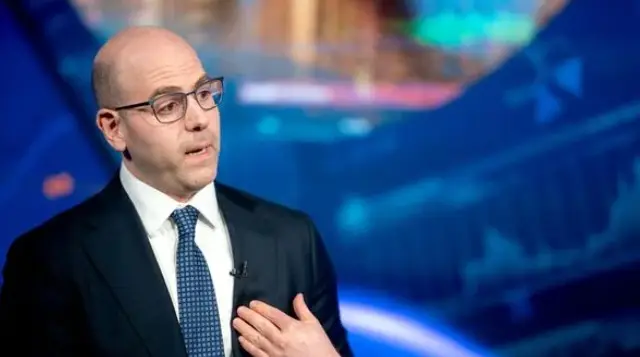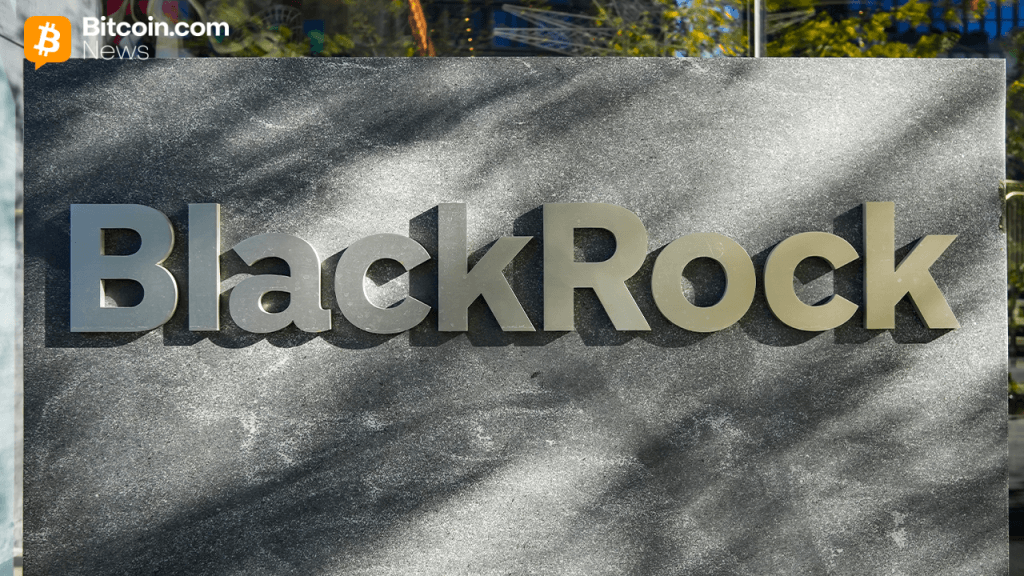Stablecoin Sector Adds $703M This Week While Blackrock’s BUIDL Surges
Trump Picks Stephen Miran for Fed Seat With Crypto Views in Focus
(Originally posted on : Crypto News – iGaming.org )
President Donald Trump has moved swiftly to fill the Federal Reserve Board seat left open by Adriana Kugler’s sudden resignation, nominating Stephen Miran, the current chair of the Council of Economic Advisers and a long-time ally in his economic policy circle. The announcement landed Thursday afternoon on Truth Social, sending ripples through financial markets — and even the crypto world.
Good to know
- Stephen Miran has linked crypto to future economic innovation, calling it a potential driver in growth strategies.
- He has written about crypto’s wealth effects influencing labor supply and inflation.
- Bitcoin prices rose on news of his nomination, helped by separate policy moves around crypto in retirement accounts.
From Treasury to the Fed
Miran, 41, served as a senior economic policy adviser at the Treasury during Trump’s first term and earned his economics PhD from Harvard University. He has also been a senior fellow at the Manhattan Institute for Policy Research.
Trump praised his track record, saying:
“He has been with me from the beginning of my Second Term, and his expertise in the World of Economics is unparalleled — He will do an outstanding job.”
New players only. Exclusive 111% Welcome Bonus + 111 Free Spins
Kugler’s resignation cut short a term set to run until January 2026. Tensions between the Trump administration and the Fed have escalated in recent months, with the president pushing for steep rate cuts to ease the government’s interest burden on the $36.67 trillion national debt.
Why His Stance Matters for Crypto
Miran’s economic views go beyond interest rates. In a December 2024 interview with The Bitcoin Layer, he described financial deregulation as a “powerful part” of pro-innovation policy, adding that crypto has a big role potentially to play in innovation.
He has also argued that wealth generated from digital assets and “memestocks” can affect real-world economic behavior, from job participation to consumer demand. While open to the sector, he has admitted he doesn’t “know enough about crypto to weigh in on magnitude,” reflecting both curiosity and caution.
Policy Signals and Market Reaction
His nomination comes with the potential to shift the Fed’s tone. Markets often view pro-innovation and deregulatory thinking as supportive for risk assets. The day his name surfaced, Bitcoin climbed past $117,000, helped by separate headlines on expanding crypto access in 401(k) retirement accounts.
New players only. Exclusive Welcome Bonus of 177% + 77 Free Spins
If confirmed, Miran would join Christopher Waller and Michelle Bowman in advocating rate cuts at the September meeting, creating a stronger bloc within the Fed favoring looser policy. That shift could indirectly benefit the digital asset market by improving liquidity conditions.
Quick hits
- Term length: Would serve until January 31, 2026 if confirmed.
- Vote timing: Could participate in the September Fed meeting if approved quickly.
- Next big shake-up: A broader overhaul may follow when Jerome Powell’s term ends in May 2026.
FAQ
Is Stephen Miran “pro-Bitcoin”?
He has called crypto a potential driver of innovation and supports deregulation that could foster it. He’s not a Bitcoin maximalist but is open to the sector’s growth.
Could he push the Fed toward holding Bitcoin?
There’s no evidence he has suggested adding Bitcoin to the Fed’s balance sheet or replacing the dollar.
How much influence will he have on crypto policy?
The Fed doesn’t directly regulate most crypto activity, but it shapes liquidity, bank relationships, and payment infrastructure — all important for the sector.
Summary
Stephen Miran’s nomination blends two market themes: rate-cut optimism and a friendlier environment for digital assets. With a history of advocating for innovation-driven deregulation and an openness to crypto’s role in the economy, his presence at the Fed could influence both monetary policy and the climate for digital assets. The Senate confirmation process will determine whether those shifts start before the September meeting.







 Bitcoin
Bitcoin  Ethereum
Ethereum  Tether
Tether  XRP
XRP  USDC
USDC  Solana
Solana  TRON
TRON  Dogecoin
Dogecoin  Lido Staked Ether
Lido Staked Ether  Figure Heloc
Figure Heloc  Bitcoin Cash
Bitcoin Cash  WhiteBIT Coin
WhiteBIT Coin  Cardano
Cardano  USDS
USDS  LEO Token
LEO Token  Wrapped stETH
Wrapped stETH  Hyperliquid
Hyperliquid  Chainlink
Chainlink  Wrapped Bitcoin
Wrapped Bitcoin  Ethena USDe
Ethena USDe  Binance Bridged USDT (BNB Smart Chain)
Binance Bridged USDT (BNB Smart Chain)  Monero
Monero  Canton
Canton  Stellar
Stellar  USD1
USD1  Wrapped eETH
Wrapped eETH  Rain
Rain  Zcash
Zcash  sUSDS
sUSDS  Hedera
Hedera  Litecoin
Litecoin  Dai
Dai  Coinbase Wrapped BTC
Coinbase Wrapped BTC  PayPal USD
PayPal USD  Avalanche
Avalanche  Shiba Inu
Shiba Inu  WETH
WETH  Sui
Sui  Toncoin
Toncoin  World Liberty Financial
World Liberty Financial  USDT0
USDT0  Cronos
Cronos  Tether Gold
Tether Gold  PAX Gold
PAX Gold  MemeCore
MemeCore  Uniswap
Uniswap  Polkadot
Polkadot  Mantle
Mantle  Ethena Staked USDe
Ethena Staked USDe  BlackRock USD Institutional Digital Liquidity Fund
BlackRock USD Institutional Digital Liquidity Fund  Aave
Aave  Pepe
Pepe  Aster
Aster  Falcon USD
Falcon USD  Bittensor
Bittensor  OKB
OKB  Bitget Token
Bitget Token  Global Dollar
Global Dollar  Pi Network
Pi Network  Circle USYC
Circle USYC  syrupUSDC
syrupUSDC  Ripple USD
Ripple USD  HTX DAO
HTX DAO  Ethereum Classic
Ethereum Classic  Sky
Sky  NEAR Protocol
NEAR Protocol  Ondo
Ondo  BFUSD
BFUSD  Pump.fun
Pump.fun  Internet Computer
Internet Computer  Superstate Short Duration U.S. Government Securities Fund (USTB)
Superstate Short Duration U.S. Government Securities Fund (USTB)  POL (ex-MATIC)
POL (ex-MATIC)  Cosmos Hub
Cosmos Hub  Gate
Gate  Worldcoin
Worldcoin  KuCoin
KuCoin  Jupiter Perpetuals Liquidity Provider Token
Jupiter Perpetuals Liquidity Provider Token  Midnight
Midnight  Ethena
Ethena  NEXO
NEXO  Jito Staked SOL
Jito Staked SOL  USDtb
USDtb  Official Trump
Official Trump  Binance-Peg WETH
Binance-Peg WETH  Algorand
Algorand  Rocket Pool ETH
Rocket Pool ETH  Spiko EU T-Bills Money Market Fund
Spiko EU T-Bills Money Market Fund  Binance Bridged USDC (BNB Smart Chain)
Binance Bridged USDC (BNB Smart Chain)  Render
Render  Filecoin
Filecoin  Wrapped BNB
Wrapped BNB  USDD
USDD  Function FBTC
Function FBTC